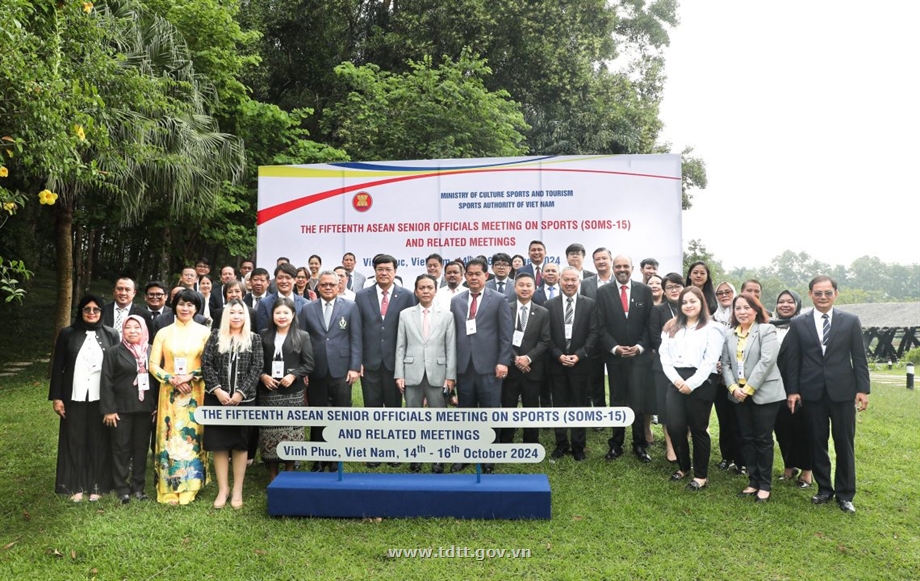The meetings served as a platform for ASEAN Member States (AMS), Japan, and China to discuss and align their collaborative efforts in the field of sports. Over 50 participants from AMS, Japan, China, and representatives from various international organisations and partners, including FIFA, World Anti-Doping Agency (WADA), Southeast Asia Regional Anti-Doping Organisation (SEARADO) and Portas, attended these meetings, reinforcing the region’s commitment to sports as a driving force for community building, sustainable development, and inclusivity.
On 14 October, AMS senior officials gathered to review the progress of the ASEAN Work Plan on Sports 2021-2025. The ASEAN Senior Officials Meeting on Youth (SOMY) reaffirmed the importance of sports in community-building and achieving the Sustainable Development Goals (SDGs). Notably, the meeting approved the use of the ASEAN Development Fund for the End-term Review of the ASEAN Work Plan on Sports 2021-2025.

The meeting welcomed the proposal to consolidate key reports on sports and youth crime prevention into a single ASEAN publication, which will soon be released on the ASEAN website. Participants highlighted the region’s ongoing efforts in promoting sports integrity, inclusivity, and capacity-building through partnerships with international organisations.
The meeting also highlighted key achievements, such as the ASEAN Centre of Excellence on Sports Coaching in Malaysia and the successful integration of sports into youth crime prevention initiatives in Thailand.
In addition, preparations for the 33rd SEA Games and 13th ASEAN Para Games, both to be held in Thailand, were shared. Collaborative efforts with global entities, including FIFA and WADA were also reinforced, particularly in relation to advancing the ASEAN-FIFA MoU and ASEAN-WADA collaborations.
On 15 October, the 7th SOMS+Japan meeting focused on strengthening ASEAN-Japan sports cooperation under the Chiang Mai Declaration. Japan provided updates on initiatives that promote women’s participation in sports and enhance physical education for people with disabilities. Key flagship projects, such as ASEAN Football4SDGs, were lauded for their role in using sports to drive sustainable development and community-building.
AMS and Japan also discussed capacity-building initiatives for sports professionals and explored future areas of collaboration, reaffirming their shared commitment to promoting inclusive sports and improving sports management across the region.
The 3rd SOMS+China meeting, held on 16 October, focused on deepening ASEAN-China cooperation in sports. Central to the discussions was the ASEAN-China Traditional Sports and Games Exchange and Revitalisation initiative, aimed at preserving intangible cultural heritage through sports. AMS and China explored further opportunities for cooperation, agreeing to advance efforts that promote cultural exchange and mutual understanding through traditional sports.
The meetings underscored the importance of sports as a vehicle for regional integration and community-building. The successful conclusion of these three meetings marked a significant step forward in strengthening sports cooperation, with ASEAN Member States reaffirming their commitment to inclusive and sustainable sports development. The outcomes of these meetings will play a crucial role in shaping future initiatives including the continued implementation of the ASEAN Work Plan on Sports 2021-2025.
ASEAN Secretariat